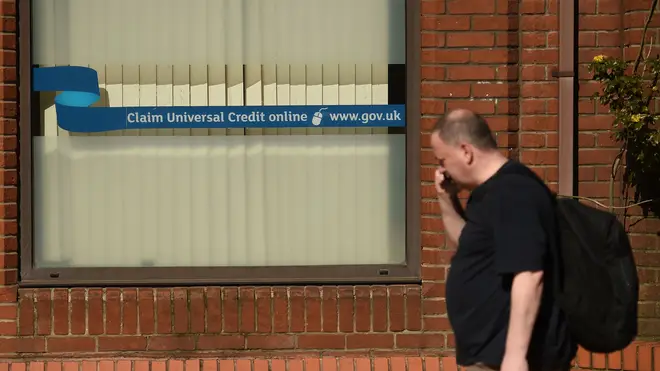
Nick Ferrari at Christmas 1pm - 3pm
2 April 2020, 11:07

Almost one million people have applied for Universal Credit in the past two weeks amid the coronavirus pandemic.
The Department for Work and Pensions said it had seen roughly nine or 10 times as many benefit claims since 16 March - a situation made worse by the coronavirus outbreak.
Roughly 950,000 people have sought Universal Credit in the past two weeks, a significant increase on the 100,000 or so applicants for a normal fortnightly period.
About a quarter - 70,000 - of the roughly 270,000 applications in one week applied for an advance payment.
One charity warned that giving these advance payments as loans instead of grants could lead to a "coronavirus debt crisis".
The Salvation Army said thousands of people could be pushed into debt, calling it a "point of critical failure that the Government must address."
Thousands of people who lost their livelihoods due to #coronavirus will be plunged into debt waiting for their 1st #UniversalCredit payment. We're urging the Govt' to replace advance loans with grants to stop families ending up in poverty: https://t.co/MxiTYtm2Wa pic.twitter.com/lPSylxYw9I
— The Salvation Army (@salvationarmyuk) April 1, 2020
As it stands, claimants must wait five weeks before receiving their first payment. However, they can take out an advance loan to subsidise them during this period.
The Work and Pensions Committee wrote to the DWP on 25 March, asking how many of those who applied for a payment since 16 March had received it, and the average length of time they waited.
However, it has not yet received a response.
Rebecca Keating, the Salvation Army's director of employment plus, said: "The Universal Credit loan system could cause a coronavirus debt crisis.
"Thousands of people who never thought they would have to rely on state support are now making a Universal Credit claim."
Ms Keating argued the bridging loan will just move people's money problems five weeks down the line.
"We are particularly concerned by those working on zero-hour contracts that don't have the same legal rights of other employees," she added.
"Many will not have a financial safety net to help avoid getting into debt straight away."

More NHS staff will die in coronavirus fight, professor tells LBC
The charity said that obtaining a loan could lead to people having to choose between buying food or repaying the money. It also added it had seen an increase in food bank use, with citizens using their benefit payments to pay off their loan.
Work and pensions committee chairman, Stephen Timms, said: "In the current crisis, it's simply not sustainable for the DWP to force people to choose between suffering hardship now or struggling to repay debts for months to come.
"Those who can work will surely be tempted to keep working instead - increasing the risk of infection for them and those around them."
The DWP said advances allow people to access money within the first few days of their claim and that safeguards are in place to ensure repayments are affordable.
A spokesman said: "With such a huge increase in claims there are pressures on our services, but the system is standing up well to these and our dedicated staff are working flat out to get people the support they need.
"We're taking urgent action to boost capacity - we've moved 10,000 existing staff to help on the frontline and we're recruiting more."